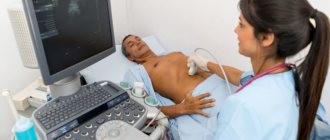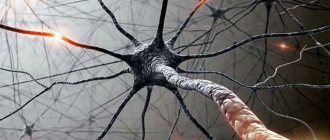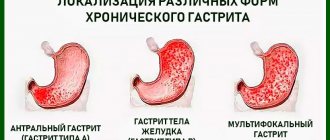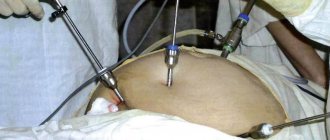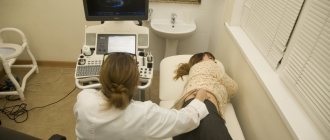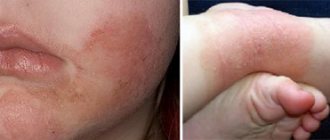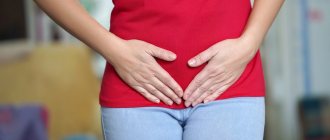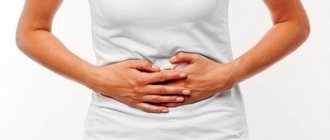A burning sensation in the stomach is not a separate disease, but a symptom of various pathological processes occurring in the gastrointestinal tract. When it appears, consultation with a specialist, gastroenterologist or surgeon is vital. Self-medication and self-diagnosis in a condition where the stomach bakes leads to an exacerbation of the underlying disease and a risk to the patient’s life. Information on the treatment of this pathology cannot be taken as a guide to action; it is provided for reference purposes.
General information
Burning sensation, like pain, is an important diagnostic symptom. A burning sensation in the stomach most often occurs in the initial stages of gastritis or peptic ulcer .
The symptom can be relieved with medication, because prolonged burning can lead to cancer. Unregulated loads on the digestive system lead to changes in acidity, disruption of the glandular tissues of the stomach and their integrity. When the “stomach is on fire,” in contrast to heartburn , it does not burn in the upper parts of the larynx (as a result of reflux disease and involuntary reflux of food into the esophagus), but discomfort is felt somewhat lower - in the epigastric region. Despite the different etiologies, their treatment is similar.
Consequences of ignoring a dangerous symptom
If the condition when it bakes in the stomach is not diagnosed and treated, the consequences can be the most unpredictable. Untreated gastritis and ulcers can lead to significant damage to the mucous membrane, including perforation of the stomach walls, gastric bleeding, and peritonitis.
In advanced cases, death cannot be ruled out. Constant irritation of the walls of the stomach by excessive release of hydrochloric acid and the reflux of bile into it can eventually lead to the development of an oncological process and the appearance of inoperable tumors.
Pathogenesis
The burning sensation is accompanied by irritation and injury to the mucous membranes due to increased acidity of gastric juice, peptic enzyme activity and the formation of ulcers. It can “burn with fire” when a person is very hungry and acidic gastric juice reaches erosive areas.
Irritation of the mucous membranes can occur not only due to acidic gastric contents, but in more rare cases it is caused by alkaline reflux . In this case, the mucous membranes are exposed to the action of bile acids , which enter the stomach through the duodenogastric reverse flow of bile.
The pathological process begins with an imbalance in the ratio of “aggressive” and “protective” factors of the digestive system. The main aggressive effect is to increase the activity of proteolytic enzymes and the level of acidity secreted by gastric juice, along with a deterioration in the motility of the digestive organs. Protective properties are reduced if:
- less mucus is produced;
- the processes of natural physiological regeneration of the epithelial surface slow down;
- local blood circulation, innervation and trophism are disrupted.
For example, this can occur under conditions of prolonged or repeated psycho-emotional stress against a background of negative emotions.
A separate predisposing factor, along with heredity and family history, are deficiencies in diet and nutrition, smoking and alcohol abuse.
The pathological process is based on proteolytic destruction of tissue by gastric juice in an area with deteriorated trophism, which is most often observed in the lower parts of the stomach. A decrease in the alkaline component and prolonged contact with acidic gastric juice is possible with spasm of the gastric sphincter - the pylorus. In addition, the level of mucin contained in mucus, the state of the apical membranes of enterocytes, and nervous and vascular trophism are important .
When the mucous barrier and the protein-lipid complex of the apical membranes are destroyed, reverse diffusion of hydrogen ions into the cell membranes occurs, which activates the kinin-kallikrein inflammatory system and increases the permeability of the capillary network. This leads to microcirculation disorder, then lipid peroxidation products as a result of oxidative degradation of lipids under the influence of free radicals, damaging lysosomes.
The negative neuro-emotional effect on the gastrointestinal tract is carried out through the anterior parts of the hypothalamus , along the path of the vagus nerve, acetylcholine, histamine and gastrin receptors in glandular tissues. The formation of acid and the proteolytic activity of the gastric glands increases under the influence of thyroid-stimulating and adrenocorticotropic hormone - the glucocorticoid effect of the adrenal glands increases and the mineralcorticoid effect of the adrenal glands decreases, the production of hydrochloric acid is stimulated and the protective and reparative properties of the mucous membranes of the stomach and intestinal tract are reduced.
Local protective mechanisms are implemented by mucoid cells that produce glycoproteins , sialoproteins and fucopolyproteins , as well as mucus coming from the oral cavity. It is alkaline and can neutralize hydrochloric acid (HCl). In general, the gastrointestinal tract is a very vulnerable system of the body, but it has good regenerative abilities.
Heartburn
print version- home
- >
- For patients
- >
- Symptoms
- >
- Heartburn
Heartburn
is a feeling of discomfort or a burning sensation behind the sternum, spreading upward from the epigastric (epigastric) region along the esophagus, one way or another associated with the reflux of gastric contents into the esophagus (the so-called gastroesophageal reflux).
Instead of the burning sensation of heartburn, some people experience a feeling of pressure, fullness, warmth, or a lump. Heartburn can occur with any acidity of gastric juice, but most often it occurs with increased acidity.
Heartburn is not an independent disease, but a symptom, so its treatment begins with identifying the underlying disease that causes heartburn and treating this particular disease. Depending on the location of manifestation, three types of heartburn are sometimes distinguished:
- pharyngeal heartburn - a burning sensation in the throat, usually indicating weakness of the lower and upper esophageal sphincters;
- epigastric heartburn - a burning sensation in the epigastrium, i.e. in the epigastric region, usually occurs when intestinal contents are thrown into the stomach;
- retrosternal heartburn is a burning sensation behind the breastbone, usually indicating weakness of the lower esophageal sphincter. Poor functioning of the lower esophageal sphincter can also be indicated by the appearance of heartburn after eating, in a horizontal position, or with deep bends.
Pharyngeal heartburn
| Epigastric heartburn | Retrosternal heartburn |
Many people have experienced isolated cases of heartburn. This condition occurs for several reasons:
- due to the intake of low-quality food or products that irritate the esophageal mucosa. Basically, these are spicy foods, citrus fruits and juices, tomatoes and tomato sauces, spices, onions, garlic, sweets, and also after significant overeating;
- in situations in which there is an increase in pressure in the abdominal cavity, which contributes to the backflow of gastric juice and food masses from the stomach into the esophagus - this is physical overexertion, heavy lifting, coughing, tight clothing, obesity and pregnancy;
- eating certain foods, such as chocolate, fatty foods, especially overcooked ones, freshly baked black bread;
- eating foods containing peppermint, alcohol and caffeine-containing drinks (coffee, black tea, especially sweet, Coca-Cola, etc.), which reduce the tone of the lower esophageal sphincter (gastroesophageal junction);
- taking medications, such as some drugs to lower blood pressure, heart medications, drugs for the treatment of bronchial asthma containing theophylline (teopek, theotard, etc.) disrupt the activity of the lower esophageal sphincter;
- Smoking also has a negative effect on the functioning of the lower esophageal sphincter.
In gastroenterological patients, heartburn is usually combined with belching.
Most often, heartburn intensifies when lying horizontally or bending forward, which contributes to gastroesophageal reflux.
But there are quite a large number of people who suffer from heartburn constantly and experience significant suffering from it. In these cases, heartburn is a symptom of various diseases of the gastrointestinal tract, including esophagitis, gastroesophageal reflux disease, gastric ulcer, duodenal ulcer, chronic gastritis with increased secretory function, chronic cholecystitis, cholelithiasis, in operated patients when applying gastroesophageal anastomosis.
Diagnosis of heartburn
In some cases, heartburn is so intense that differential diagnosis is required with a burning sensation or chest pain that occurs in a number of diseases of the cardiovascular and nervous systems.
Confirmation that there really is heartburn is the rapid disappearance of the burning sensation after taking antacid drugs (Gastal, Rennie, etc.).
To determine the causes of heartburn, as well as to prescribe the correct treatment, it is necessary to study the acidity of gastric juice (daily intragastric and esophageal pH-metry) and the performance of the lower esophageal sphincter (esophageal manometry).
Daily pH gram of a patient obtained using the Gastroscan-24 device, who complains of rare episodes of heartburn, 3–5 times a week.
Treatment of heartburn
Here we will give several recommendations for quickly getting rid of heartburn, which does not save you from the trouble of going to the doctor and finding out its cause.
First aid for heartburn is taking antacids, i.e. drugs that bind excess acid produced in the stomach. There are a lot of them, for example, Rennie. This drug does not contain aluminum, which causes constipation. It contains calcium carbonate and magnesium carbonate - soft compounds that neutralize the increased acidity of the stomach contents. Rennie does not need to be washed down with water, it helps very quickly, in seconds, and is not addictive.
It is better for pregnant women to take Gaviscon-Forte. This drug is harmless for pregnant women, it acts on the principle of forming a “raft” that floats on the surface of the gastric contents, preventing it from entering the esophagus.
These recommendations are effective for increased intragastric acidity. But heartburn can also be a problem with low acidity. In this case, treatment should be aimed at improving digestion and preventing the reflux of bile into the stomach and esophagus. For these purposes, prokinetics (Motilium) and enzyme preparations (Mezim) are used.
There are many more folk remedies to combat heartburn, which we can recommend to you only if you have a lot of health and you don’t mind spending it. Let's list some of them.
Taking activated carbon. A relatively harmless, although, most often, useless method.
Taking baking soda. Temporary relief and an “acid rebound”, after which you will feel worse.
Taking medications that reduce acid production (ranitidine, omez, omeprazole, etc.). These drugs are intended for the treatment of acid-related diseases, including gastroesophageal reflux disease, the main symptom of which is heartburn. If used incorrectly, these drugs can cause an increase in gastric acidity.
Taking mint. Mint helps relax the lower esophageal sphincter and, thereby, facilitates the reflux of gastric contents into the esophagus.
Taking milk. The proteins and calcium in milk stimulate the secretion of acid by the stomach. As with taking soda, there is first temporary relief, then worsening.
Taking potato or cabbage juice. By the way, gastroenterologists use cabbage broth to stimulate secretion.
Taking ginger, bitters, aromatic herbs, apple cider vinegar, burnt chalk with spicy roots, unroasted sunflower seeds with husks, corn grains in the stage of milky-wax ripeness, date pits, etc.
For some, these tips even help, if they survive, of course.
Recommendations for lifestyle changes for heartburn
Most often, heartburn occurs after eating significant amounts of food - spicy, fatty, overcooked.
Limit fried foods, rich meat and fish broths. Don't overeat or eat too quickly, chew your food better. Eat small meals 5-6 times a day. Consume foods that cause heartburn as little as possible. These are carbonated drinks, chocolate, fatty foods, butter, citrus fruits, spices, onions, garlic, strong tea, coffee, sweets, alcoholic drinks, tomatoes. Note that spices and citrus fruits do not have a bad effect on everyone; monitor their effect on your well-being.
Reduce the consumption of foods that contribute to flatulence: milk, rye bread, legumes, cabbage.
Try to achieve regular bowel movements.
Eating low-fat foods (boiled meat, poultry, fish), and steamed food is very good for the body suffering from heartburn.
After eating, do not lie down, it is better to take a walk. It is more difficult for acid to rise upward.
Do not smoke. And if someone smoked near you, ventilate the room. Tobacco smoke relaxes the lower esophageal sphincter and increases acid production.
Avoid conditions that increase abdominal pressure, such as physical strain, heavy lifting, coughing, tight clothing, especially tight belts, and excess weight.
Try not to tense your abdominal muscles, especially after eating. Bend over less. Lift objects by bending your knees, not your back. By the way, it’s better for your back.
Don't go to bed immediately after eating. Wait 2-3 hours.
If you are taking any medications, consult your doctor; some of them (anti-anxiety medications, antidepressants, some blood pressure medications, heart medications, medications for the treatment of bronchial asthma, non-steroidal anti-inflammatory drugs, etc.) may cause heartburn or irritate the lining of the esophagus.
Look at life more cheerfully. Stress causes increased acid production in the stomach.
Doctors classify heartburn as R12
in the International Classification of Diseases ICD-10.
Heartburn in patient materials
Articles for patients
- Heartburn and reflux disease. The essence of the problem
- British Society of Gastroenterology advice for patients with heartburn and gastroesophageal reflux
- Is it just minor heartburn or something more serious?
- Advice from the American College of Gastroenterology for problems swallowing and heartburn
- Gastroesophageal reflux disease (GERD) questions and answers
Video for patients
| What is heartburn and how to treat it correctly. Says Ph.D. I.G. Pakhomova | |
| Intestinal Express with Dr. Vyalov. Reflux: acid and bile, heartburn and belching | |
| Lopatina M.V. Heartburn and bitterness in the mouth. GERD (gastroesophageal reflux disease). Diet, treatment |
See also video:
- Sheptulina A.F. Constant heartburn - all about heartburn treatment
- Vasiliev R.V. Heartburn and GERD. Causes of heartburn
On the website GastroScan.ru in the “Video” section there is a subsection for patients “Popular Gastroenterology”.
Heartburn for Healthcare Professionals
Articles for doctors
- Lazebnik L.B., Bordin D.S., Masharova A.A. Society against heartburn // Experimental and clinical gastroenterology. – 2007. – No. 4. – P. 5-10.
- Lazebnik L.B., Bordin D.S., Kozhurina T.S., Masharova A.A., Firsova L.D., Safonova O.V. A patient with heartburn: tactics of a general practitioner // Attending physician. – 2009. – No. 7. – pp. 5-8.
- Pasechnikov V.D. Non-erosive reflux disease and functional heartburn
// Consilium Medicum. Provisor. – 2004. – T. 4. – No. 1. - Lapina T.L. Heartburn: prevalence, clinical significance, patient management. Pharmateka. // Annual collection of selected scientific and medical articles. Gastroenterology. – 2006. – pp. 96–103.
- Grishchenko O.V., Storchak A.V., Yakovleva T.A., Katamadze M.A. Use of the drug Maalox for symptomatic treatment of heartburn in pregnant women // Medical newspaper “Health of Ukraine”. – 2008. – No. 11. – p. 58–59.
On the website GastroScan.ru in the “Literature” section there is a subsection “Diseases of the esophagus”, which contains a large number of publications for doctors on diseases of the esophagus, their diagnosis and treatment.
Video for doctors
| Valitova E.R. Differential diagnosis for heartburn | |
| Kaibysheva V.O. Personalized approach to the diagnosis and treatment of GERD | |
| Vyalov S.S. Night heartburn: from theory to practice | |
| Berezina O.I. Heartburn syndrome: diagnosis, treatment tactics | |
| Kucheryavyi Yu.A. Acid-dependent diseases of the esophagus: are there answers to all questions? | |
| Uspensky Yu.P. GERD and other acid-dependent diseases of the digestive system. Principles of rational pharmacotherapy |
On the website GastroScan.ru in the “Video” section there is a subsection “For Doctors”, containing video recordings of reports, lectures, webinars in various areas of gastroenterology for healthcare professionals.
Video for medical students
| Schwartz Yu.G. Diseases of the esophagus. Gastroesophageal reflux disease |
On the website GastroScan.ru in the “Video” section there is a subsection “For medical students and residents”, containing recordings of lectures and educational materials.
Classification
Burning in the epigastrium can be constant or occur exclusively after meals.
Constant burning sensation in the stomach
Burning painful sensations at night and in the morning are an alarming sign and a reason to consult a doctor. A constant burning sensation in the stomach and esophagus usually occurs due to pathology - gastritis , peptic ulcer or reflux disease . Most often, discomfort and pain are caused by damage to the tissues lining the digestive tract.
Burning in the stomach after eating
Swelling in the epigastric region (corresponding to the projection of the stomach on the anterior wall of the peritoneum) after eating may be due to poor nutrition. Even a small piece of a harmful or coarse product can irritate nerve endings, provoke inflammation and burning sensations.
Medicines for heartburn and pain
A common method for treating heartburn is to drink a baking soda solution, which reacts with the acid in the esophagus, neutralizing it. This method does temporarily relieve discomfort, but only for a short period of time. In addition, constant use of soda only aggravates the condition and is not recommended by any doctor.
Proven remedies for the treatment of heartburn and stomach pain:
- Proton pump inhibitors. Powerful antisecretory drugs that suppress the production of hydrochloric acid in the stomach and affect the mechanism of heartburn formation. The basic drug from this group is Omeprazole, which is the active ingredient of Omez® 10 mg. The recommended dose of Omez® 10 mg is 2 capsules per day. The effect of the drug can last for 24 hours. This is a convenient way to combat heartburn: capsules are taken 1 time 30 minutes before meals in the morning. The maximum possible duration of a course of the drug without a doctor’s prescription is 14 days4.
- H2 histamine blockers. Antisecretory drugs that are inferior in power to PPI7. Drugs rarely cause side effects when used in small doses7. Currently, proton pump inhibitors are preferred in medicine4.
- Antacids. The mechanism of action of antacids is to neutralize hydrochloric acid. In this way they relieve the symptoms of reflux, but do not have any effect on the formation of excessive amounts of acid in the stomach. Antacids1 act quickly and are often used as an emergency treatment. However, the duration of the effect of these drugs is short – a few hours1.
- Alginates. The principle of action of alginates is somewhat similar to the effect of antacids. Only they do not completely neutralize the acid, but form a layer of neutral medium between the mucous membrane and gastric juice3.
Treatment of heartburn accompanied by pain includes therapy for the underlying disease. A disease of the gastrointestinal tract can be suspected if taking the listed medications does not have a lasting effect within 2 weeks1. Changing your lifestyle along with timely treatment will help you avoid the complications of frequent acid reflux into the esophagus and prevent the occurrence of heartburn and abdominal pain.
THERE ARE CONTRAINDICATIONS, YOU MUST READ THE INSTRUCTIONS FOR MEDICAL USE OR CONSULT A DOCTOR.
Causes of burning in the stomach
Heartburn and burning can be caused by:
- unhealthy diet, for example, eating fatty, fried, spicy, smoked, etc. or too rough food;
- irregular meals, prolonged fasting;
- overeating;
- drinking alcoholic beverages;
- hypersensitivity of the mucous membranes of the esophagus;
- the presence of helminths, pathogenic microorganisms, for example, E. coli ;
- release of bile or juice from the pancreas into the stomach;
- allergic reactions;
- gastritis or peptic ulcer ;
- heart problems - angina pectoris, myocardial infarction, hypertension, aortic aneurysm ;
- drug treatment, for example, antibiotics ;
- stress;
- pressure on the abdominal cavity from a diaphragmatic hernia , as well as in late pregnant women and obesity .
The reasons can be internal or external in nature. If the reason is in nutrition, certain foods or drinks, or medications entering the body, then excluding them from the diet is an adequate solution to the problem.
Important! A burning sensation in the stomach, but not heartburn, is the cause of serious gastroenterological problems, for example, gastritis, esophagitis, peptic ulcer .
Mechanism of symptom formation
The main component of gastric juice is hydrochloric acid. It works as an activator of digestive enzymes and is an important part of food digestion. Thanks to it, an acidic environment is formed in the stomach, and the organ itself has a special mucous layer that protects against irritation.
Under the influence of certain factors, a bolus of food with enzymes and hydrochloric acid enters the esophagus from the stomach. This organ does not have a protective layer, and the environment is normally alkaline. Therefore, the acid chemically burns the walls of the esophagus, which causes a burning sensation1.
Most often, the symptom occurs 15-30 minutes after eating and may be accompanied by nausea6. The association of a burning sensation behind the sternum with food intake makes it possible to distinguish the condition from heart problems5.
Treatment with folk remedies
Many plants have healing properties for the digestive tract, including:
- horse sorrel - a fresh salad before meals will help prevent stomach discomfort that occurs spontaneously and disturbs at night;
- calamus - you need to chew this root, you can even swallow it in small quantities;
- crushed buckwheat - a pinch of this dry cereal three times a day makes it possible to prevent gastric problems;
- eggshells - after boiling the eggs, the separated shells should be crushed in a mortar and consumed in the morning, lunch and evening in an amount that fits on the tip of a knife;
- potato juice - before each meal, it is enough to squeeze out one root vegetable, take it for several weeks, the product is also an excellent prevention of symptoms such as bad taste and bad breath;
- tinctures of St. John's wort, chamomile, plantain - 1.5 teaspoons three times a day help with constant burning in the stomach;
- Pharmaceutical preparations, for example, from buckthorn bark, nettle leaves, peppermint, valerian rhizomes, calamus, have a complex effect - anti-inflammatory, choleretic, mild laxative, can normalize acidity levels and eliminate pain.
Diagnostics
Before prescribing treatment, the doctor will conduct a full examination of the person and prescribe a series of tests to accurately determine the cause of the burning sensation. True, it should be immediately noted that the sooner a person applies, the better the results will be. To accurately make a diagnosis, the doctor will give the person a referral for the following studies:
- X-ray, during which it will be seen whether there are any tumors that can provoke a burning sensation
- Gastroscopy, during which the doctor examines the condition of the esophagus and stomach
- Analysis of gastric juice to understand how much acidity is increased
- Analysis for worms, as they can “travel” throughout the body, causing various diseases
- Analysis for pathogenic bacteria such as Helicobacter
- Ultrasound examination, during which the specialist will more clearly examine the lining of the stomach
After the doctor receives all the results of the studies, he will be able to make an accurate diagnosis, on the basis of which treatment will be prescribed.
First aid
If you feel an acute burning sensation, you can:
- a solution of soda or salt - half a teaspoon of soda or a pinch of salt in a glass of warm water, drink in small sips;
- milk – a glass of warm low-fat milk can help neutralize acidity;
- mineral water – natural medicinal table water is best, as it has a beneficial effect on the digestive system;
- such drugs as Rennie , Gastal , Smecta .
Diet for burning stomach
Diet for heartburn
- Efficacy: therapeutic effect after 10 days
- Timing: constantly
- Cost of food: 1350-1450 rubles per week
Diet is a fundamental factor in solving digestive problems. You must follow a strict diet and dietary restrictions. Avoid carbonated drinks, alcohol, everything fatty, fried, smoked, canned and spicy. It is necessary to give up baking and snacking on unhealthy foods such as crackers, chips, fast food, etc.
Food should be predominantly boiled and steamed foods, with a minimum of spices. You can even eat pureed vegetables and fruits, this will help reduce the load on the gastrointestinal tract.
Bibliography:
- Strugala V. et al. A randomized, controlled, crossover trial to investigate times to onset of the perception of soothing and cooling by over-the-counter heartburn treatments // Journal of International Medical Research. - 2010. - T. 38. - No. 2. - P. 449–457.
- INSTRUCTIONS for the use of the medicinal product for medical use. OMEZ 10 mg LP 00328 dated 07/11/17 Date of appeal 11/26/18.
- Komarov F.I., Osadchuk M.A., Osadchuk A.M. Practical gastroenterology. Medical news agency. Moscow, 2010. - 480 p.
- Lazebnik L.B., Masharova A.A., Bordin D.S. and others. Results of the multicenter study “Epidemiology of gastroesophageal reflux disease in Russia” (MEGRE). Therapeutic archive. — 2011. No. 1.— P. 45-50.
Osadchuk A.M., Davydkin I.L., Gritsenko T.A., Khairetdinov R.K., Kurtov I.V., Danilova O.E., Rogozina L.A., Kosyakova Yu.A., Krivova S. .P. HEARTBURN SYNDROME. CURRENT ISSUES OF PATHOGENESIS, DIFFERENTIAL
